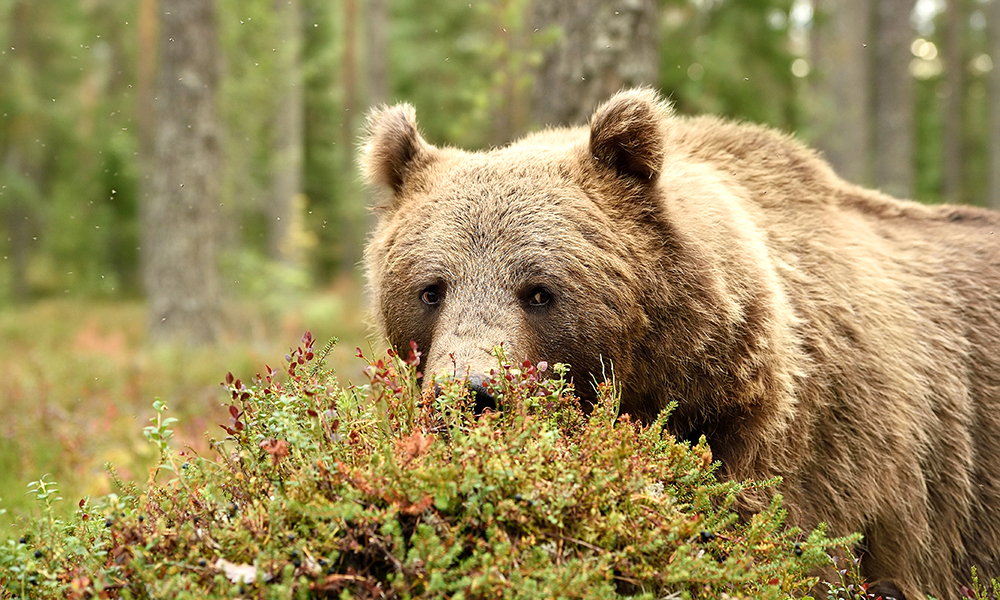
Grizzly bears are excellent gardeners, dispersing digested huckleberry seeds near and far, new research from UBC Okanagan and UBC Vancouver shows.
Grizzly bears are doing more than building fat reserves as they feast on huckleberries each summer in the Canadian Rocky Mountains-they're playing a vital role in plant ecology.
A study led by researchers from the University of British Columbia's Vancouver and Okanagan campuses, published in PLOS ONE , reveals the ecological importance of bears as long-distance seed dispersers.
"Bears don't just eat huckleberries-they help them grow in new places," says lead researcher Aza Fynley Kuijt, from UBC's Faculty of Forestry .
"Our findings show that this mutual relationship is crucial for both species, especially as climate change shifts suitable habitats for huckleberries."
The study focuses on how bear digestion enhances huckleberry germination and spreads seeds across vast areas, a process called endozoochory.
Researchers found that seeds consumed and defecated by bears had significantly higher germination rates (up to 28.5 per cent) compared to seeds left inside intact berries (0.2 per cent). The key factor is the removal of germination inhibitors in the berry pulp during digestion.
Using GPS data from 74 collared grizzly bears, the study estimated that bears disperse 50 per cent of consumed seeds at least one kilometre away from their feeding sites, with potential maximum distances of up to seven kilometres.
This movement creates a "seed shadow" covering areas as large as 149 square kilometres, enabling huckleberries to expand into new territories.
The implications are significant. Huckleberries are a key food source for bears, providing essential energy during late summer.
In turn, bears help huckleberries adapt to changing climates by dispersing seeds into new, potentially more suitable habitats. However, human activities such as urban development, resource extraction and increased recreation in bear habitats can affect this critical ecological partnership.
The study underscores the intricate relationship between large mobile mammals and the food they eat. Disrupting the bear-huckleberry relationship could have knock-on effects on both species and the broader ecosystem.
"Wildlife conservation is not just about protecting certain species, but about looking after ecological processes and relationships. As we show here, looking after grizzly bears and movement corridors can also help huckleberries, which people and bears both adore," adds Clayton Lamb, co-author and UBC Okanagan biologist .






